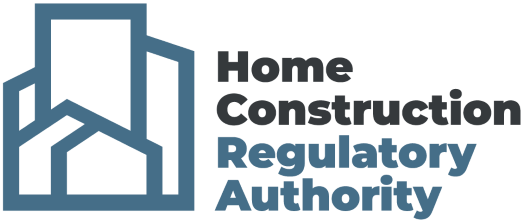Advisory 12 – Intimidation, Coercion and Obstruction
Effective: February 16, 2023
Updated: January 28, 2025
The HCRA expects all licensees to carry out their business with honesty and integrity, treat purchasers fairly, and abide by their obligations under the New Home Construction Licensing Act, 2017 (NHCLA) and its regulations, including the Code of Ethics (O. Reg. 245/21).
Generally, these legal and ethical obligations include:
- Never using intimidation or coercion or applying undue pressure to any person
- Never pressuring a person to withdraw (or to not submit) a complaint or concern to the HCRA related to a licensee’s conduct.
- Never making statements or using contractual terms that attempt to restrict or discourage purchasers or owners from benefitting from the warranty framework under the Ontario New Home Warranties Plan Act (ONHWPA), such as:
- Communicating with Tarion concerning their new home purchase; or
- Submitting or pursuing a claim for the warranties and protections under the ONHWPA.
A builder may, as part of a mutually agreed upon settlement agreement to resolve a warranty claim, include a term that the purchaser or owner withdraws the applicable claim with Tarion. However, in such cases, the purchaser or owner cannot be restricted from communicating with Tarion about the resolved warranty claim.
Specifically, the NHCLA prescribes:
1. A licensee shall comply with the Act and the regulations (which include obligations under ONHWPA).
2. A licensee shall ensure that its employees, directors, officers, principals, agents, and independent contractors shall carry out their duties in compliance with the Act and the regulations.
8. A licensee shall not obstruct or attempt to obstruct,
a) any person from making a complaint to the registrar; or
b) the registrar or the registrar’s representative from inquiring with respect to a complaint.
Additionally, S. 9 and S. 16 of the Code of Ethics reference intimidation, coercion and obstruction, stating:
9. In carrying on business, a licensee shall not intimidate or coerce any person or subject any person to undue pressure.
16. A licensee shall not obstruct or attempt to obstruct,
a) any person from making a complaint to the registrar; or
b) the registrar or the registrar’s representative from inquiring with respect to a complaint.
Actions the HCRA can take if a licensee has breached their obligations under the Code of Ethics, the NHCLA, or its regulations include:
- Mandating training for licensees and/or its employees;
- Reviewing a licensee’s ongoing entitlement to a licence;
- Proposing conditions on a licence;
- Referring the matter to the Discipline Committee, that may mandate training or issue a fine/impose costs;
- Imposing an administrative penalty of up to $30,000 for instances of obstruction; and
- Laying a provincial offence charge with a maximum penalty of $50,000 for an individual and $250,000 for a non-individual entity.
The HCRA’s complaints process is a mechanism that anyone can use to raise concerns about the conduct of a licensee. This process must not be used by licensees as an instrument to coerce or intimidate. For example, if a dispute arises between a licensee and a complainant, the parties may agree to settle the dispute and negotiate a resolution. However, the terms of the resolution must not:
- Prevent a person from submitting a complaint;
- Require a person to withdraw a complaint previously submitted;
- Prevent a complainant from discussing their concerns about a builder with the HCRA in any way.
Furthermore, as the regulator, the HCRA has the authority to look into matters regardless of non-disclosure agreements. Such agreements do not limit the HCRA’s ability to respond to concerns. The HCRA may also review concerns regardless of whether a complaint is withdrawn by the original complainant. In addition, the HCRA is permitted to investigate a matter without receiving a complaint.
In addition, a licensee should not threaten to use a complaint to the HCRA – or any regulatory action the HCRA takes in response to that complaint – as part of any other proceeding (such as, for example, threatening to cite a consumer’s complaint in a defamation suit). Doing so may fall below the HCRA’s conduct expectations and professional standards for licensees.
